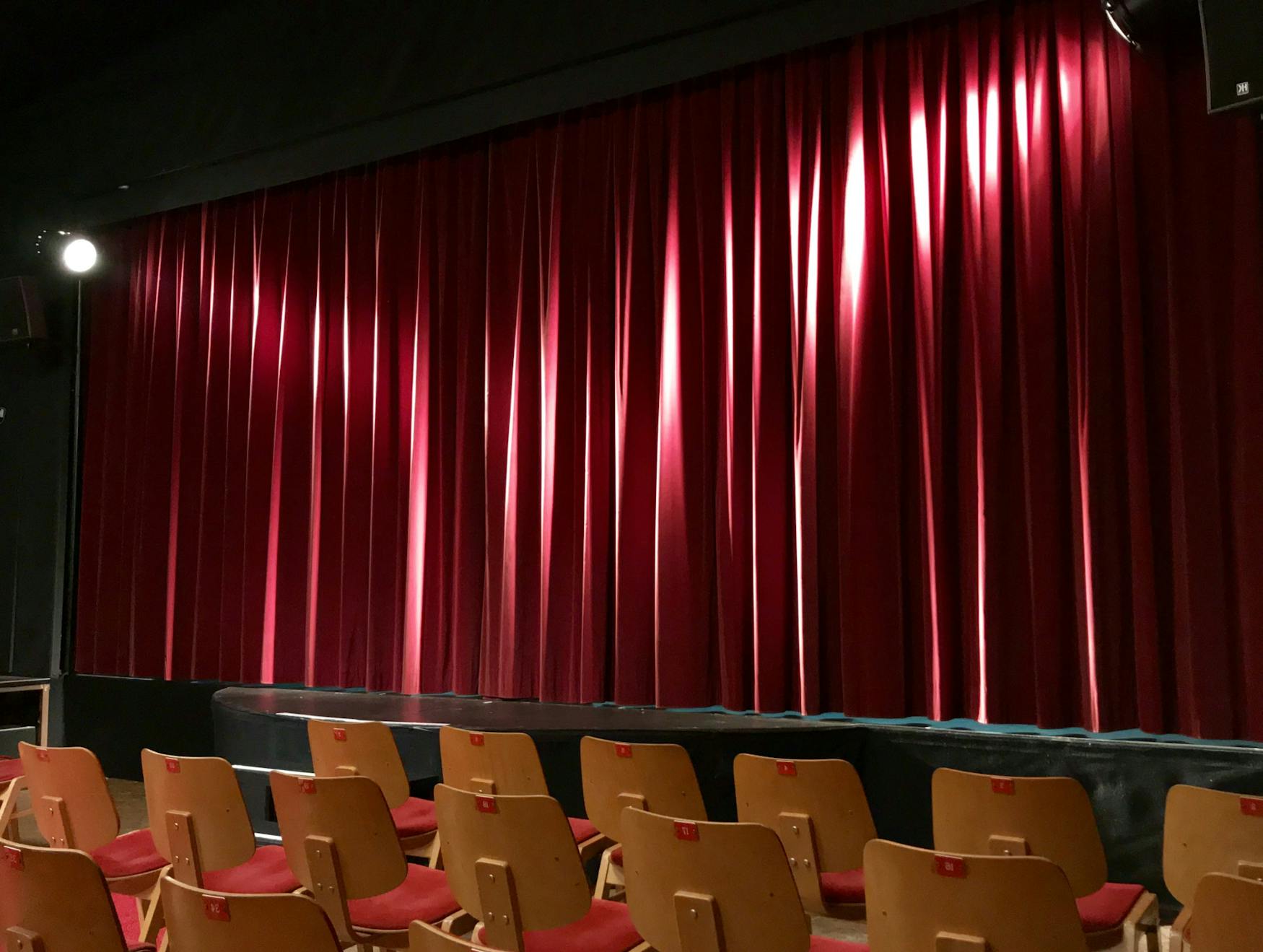"Mr.Parent": A play on education, race and intersectionality
A theatre student take — Triona
“Mr. Parent,” written by Melinda Lopez with Maurice Emmanuel Parent, is a semi-autobiographical one-actor play that explores the joy and grief of a stage performer who takes on the role of a teacher in Boston public schools. Maurice Parent plays himself in all his incarnations: by night he is the passionate, queer, overwhelmed actor Maurice; by day he is the strict, level-headed, in-control teacher Mr. Parent. He stands alone on the stage and fills the space with his story.
“Mr. Parent” was first conceived of by Melinda Lopez, Maurice Emmanuel Parent, and Megan Sandberg-Zakian for the 2019 Breaking Ground Festival. The play was initially produced virtually during the COVID-19 lockdown and premiered live at the Lyric Stage Company in 2022. It later moved to Boston Playwrights’ Theatre, where it ran for several weeks this October. The close quarters of Boston Playwrights’ Theatre made for a stunningly intimate production. In all my years of attending live theater, “Mr. Parent” is the first play in which I have had the opportunity to witness individual tears make their way down an actor’s face. With the audience surrounding him on three sides, Maurice Parent exposes his soul with a rawness and honesty that most actors can only ever dream of tapping into.
“Mr. Parent” invites audiences in to bear witness not only to Maurice Parent’s story, but to the stories of his students. He is a Black man teaching in an underfunded school that primarily serves students of color who live on the edge of, or below, the poverty line. He shares his deep anger at the unjust system that keeps them down, providing facts and figures on the public school system in Massachusetts through periodic pop quizzes for the audience. He tells of funny, intelligent, creative kids — with names changed for privacy, but stories kept the same. He speaks with a deep love for the children in his care, and his heartbreak is shared across the room when he talks about their struggles. Though he admits he feels like a failure for quitting after five years of teaching, it is clear that he has touched the lives of his students in the stories he tells of the kids who found their way to his classroom for lunch and waved to him on the street years later.
Though “Mr. Parent” is now closed in Boston it is currently traveling to Rochester, and for those who might be in that area in the next month, I can assure you that this show is more than worth taking a few hours out of your day to go see.
A comedic show steeped in the tragedy of its continued relevance — Anna
When I passed through the entrance of the Boston Playwrights’ Theatre in the company of a torrential downpour and pounding headache, my primary focus was on making sure I’d be able to get back to campus later that night. Very little energy was directed towards the show I was about to watch, which I knew centered around a man’s experience as an actor and teacher in the Boston area. That was all I knew going in.
What I didn’t know was that Maurice Emmanuel Parent was, at the time of the events described in the show, a Black gay man teaching in a school district with a significant portion of his students living below the poverty line here in Massachusetts. The same Massachusetts that while consistently ranked #1 in public education in the United States, also ranks #42 in equitable schooling according to WalletHub — as I also came to learn. This presents a pretty bleak context for “Mr. Parent’s” setting, but ultimately my impression of the show is of a love letter to teaching. While Parent is the only actor present in the show, it cannot be said that he is the only character. He uses a wide array of physical mannerisms and vocal tones to fluctuate between different people that he knows, especially his students. The lives and experiences that Parent touches upon are realistic in the way they showcase the comedy in tragedy and vice versa, grappling with matters including systemic racism, classism, homophobia, and the “American Dream.” These important realizations allow the audience to reflect on intersectionality and how it plays a role in society. One moment you may be laughing your ass off, then the next brings a carefully worded remark and everything goes silent. Parent is certainly not afraid to play with silence, providing the audience with moments to properly process important points that he makes.
While I do not want to give away all of the details in case anyone decides to make the trek to Rochester to see it in November — which I highly recommend — I want to touch upon why I loved this show so much. As the child of an educator and a freshly minted high school graduate, I find it interesting and deeply upsetting to see how the issues and emotions Parent talks about dealing with continue to be perpetuated today. I mentioned that the show is a love letter to teaching, and it is to all the joyful and frustrating moments that come with the job. I see these people that I care about in Parent and it hurts me deeply to see even a fraction of the shit they deal with. With the lingering threat of COVID-19 hanging over us and with the perpetuation of hate crimes and unjust legislation targeted at education, I believe that the value of a show like “Mr. Parent” is reaffirmed. Hopefully, art like this show coupled with civil action will help hasten progress. In the interim, I cannot recommend this show enough.



Please note All comments are eligible for publication in The Justice.